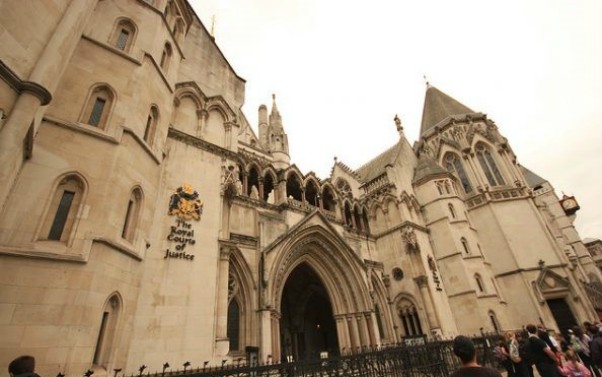
Providers are failing to register unregistered placements for which they have been authorised to deprive children of liberty, despite being required to do so urgently.
Ofsted has been notified of 33 unregistered placements authorised by the courts under the inherent jurisdiction since December 2020, for children aged 15 on average. The regulator disclosed the figures in its annual report, published last week.
However, of those, none has since registered with Ofsted. One provider, responsible for four of the placements, applied but was turned down and four were in settings registered either with the Department for Education or the Care Quality Commission.
Severe placement shortage
Such bespoke placements are becoming increasingly common because of the severe shortage of secure and other specialised placements for children who are very vulnerable due to complex needs or exploitation.
Under the Care Standards Act 2000, any setting that provides care and accommodation wholly or mainly for children must be registered.
Earlier this year, the Supreme Court, in re T, ruled that the High Court can use its inherent jurisdiction to authorise the deprivation of liberty in an unregistered setting in “imperative conditions of necessity, where there are no alternatives to protect the child”.
Get up to speed with the law
 Community Care Inform Children users can take advantage of expert analyses of some of the key cases dealing with unregistered provision, the inherent jurisdiction and deprivation of liberty, including:
Community Care Inform Children users can take advantage of expert analyses of some of the key cases dealing with unregistered provision, the inherent jurisdiction and deprivation of liberty, including:
- Unregistered placements, the inherent jurisdiction and non-compliance with the President’s Practice Guidance: Derby CC v CK & Ors [2021]
- Using the inherent jurisdiction to deprive children of liberty in unregulated placements: Re T (A Child) [2021]
- Authorising deprivation of liberty in settings banned by regulations: MBC v AM & Ors (DOL Orders for Children Under 16) [2021]
Visit the website for more information on subscribing.
However, practice guidance issued by the president of the family courts in 2019, states that steps must be taken immediately to register the placement so that it can be registered as soon as possible, and that this should be monitored by the court. The guidance says that an application to register must be made within seven days
In an update to this guidance last December, the president, Sir Andrew McFarlane, said that any such order must include a requirement for the local authority to immediately notify Ofsted about the unregistered placement. This is the basis of the figures set out in Ofsted’s annual report.
‘We can’t be sure that children are safe’
Yvette Stanley, Ofsted’s national director for regulation and social care, said such placements should only ever be used as a last resort, and for as short a time as possible.
“When they do happen, we want providers to register with us without delay, so we can check that the setting is suitable.
“If we can’t inspect, we can’t be sure that children are safe – and local authorities could be paying thousands of pounds for placements that may be leaving children at risk.”
It is not clear from Ofsted’s figures why the 33 placements have remained unregistered, including how many have since ended, why the single registration application was turned down and whether any of them were not required to register with the regulator.
This would be the case if the setting was ‘unregulated’, meaning it provided support, but not care. However, this is unlikely given children in these circumstances generally need high levels of care, and those under 16 cannot be placed in unregulated settings following a government ban introduced in September. Alternatively, settings do not need to register as children’s homes if they are covered by any of a set of exemptions set out in regulations, however, the president’s guidance states that is “very unlikely” in such placements.
The issue is one of the most acute manifestations of the shortage of appropriate placements for children in care.
‘Very few homes able to provide placements’
Elsewhere in its report, Ofsted said that for “a small number of children, there are very few homes able or willing to provide what they need – particularly children with complex needs, including mental health needs”.
It said there were particular issues finding placements for children who were mental health inpatients but were deemed not to have treatable disordered and then released. A fifth of children’s homes (475) offer care for children with mental health difficulties, however, of the 40 who specify the severity of difficulties they can cater for, just 15 can care for those with moderate or severe difficulties.
Of these, half are in the North West, with none in the East Midlands, North East and Yorkshire and the Humber, and just one each in each of the East of England, London, South East and South West. Such uneven distribution meant that children were often placed far from their families.
The regulator said that while councils were “undoubtedly in a difficult position”, some were not doing all they could to help find safe and secure placements for children. It said this required greater understanding of the needs of children in care, and councils collaborating to commission high-cost, specialist provision, including secure mental health placements.
‘Need to do something radical’
The Association of the Directors of Children’s Services (ADCS) said the use of unregistered provision was “driven by a lack of placement sufficiency” but always a last resort.
The government announced £259m to increase capacity in both the secure and open children’s homes sectors in its spending review in October.
Ramsden said the investment, as well as the children’s social care review, due to report next year, offered an opportunity “to do something more radical in this space”.
“Much closer commissioning and work between safeguarding and welfare, justice and health is needed to ensure we can meet the very complex needs of this cohort of children and young people,” she said.
Rejected placement
This month, the High Court rejected a council’s application to deprive the liberty of a 14-year-old in the hospital where she was already being detained on an interim basis.
In A County Council v A Mother & Ors (Refusal to make a DOLS order) [2021], Mr Justice Holman sympathised with the “acute difficulty” that the local authority faced in finding an appropriate registered placement for the “deeply troubled girl”, who has a history of self-harm, aggression and absconding.
But he said the girl’s placement in a paediatric unit of a south east London hospital, far from her family, should not continue, because it was not in her best interests. He said the hospital’s head of nursing had said that being in the setting was “damaging for her and her future”.
The judge said applications from councils for deprivation of liberty orders had become “far too frequent in recent years”.
‘Court cannot create placements’
Despite the “scandalous shortage of suitable establishments in the country”, he said that councils needed to understand that “the court itself does not have any resources at all available to it, nor a cheque book”.
Mr Justice Holman added: “I cannot myself find or create any solution in this case; but I am, frankly, not prepared simply to rubber stamp what the local authority and the other parties all know to be an unlawful situation at the moment in the present case.”
In an earlier judgment, A Mother v Derby City Council & Anor [2021], the High Court said that, ordinarily, it should not make an order under the inherent jurisdiction for an unregistered placement, where the provider makes it clear that it will not or cannot comply with the legal requirement to apply expeditiously for registration.
However, where the relevant local authority and provider are working with Ofsted to achieve such registration, the court should not ‘overzealously’ enforce the timescales laid down by the president’s practice guidance and frustrate the process.



 Bournemouth, Christchurch and Poole
Bournemouth, Christchurch and Poole  Hampshire County Council
Hampshire County Council  Lincolnshire County Council
Lincolnshire County Council  Norfolk County Council
Norfolk County Council  Northamptonshire Children’s Trust
Northamptonshire Children’s Trust  South Gloucestershire Council
South Gloucestershire Council  Wiltshire Council
Wiltshire Council  Wokingham Borough Council
Wokingham Borough Council  Children and young people with SEND are ‘valued and prioritised’ in Wiltshire, find inspectors
Children and young people with SEND are ‘valued and prioritised’ in Wiltshire, find inspectors  How specialist refugee teams benefit young people and social workers
How specialist refugee teams benefit young people and social workers  Podcast: returning to social work after becoming a first-time parent
Podcast: returning to social work after becoming a first-time parent  Podcast: would you work for an inadequate-rated service?
Podcast: would you work for an inadequate-rated service?  Family help: one local authority’s experience of the model
Family help: one local authority’s experience of the model  Workforce Insights – showcasing a selection of the sector’s top recruiters
Workforce Insights – showcasing a selection of the sector’s top recruiters 

 Facebook
Facebook X
X LinkedIn
LinkedIn Instagram
Instagram
Comments are closed.